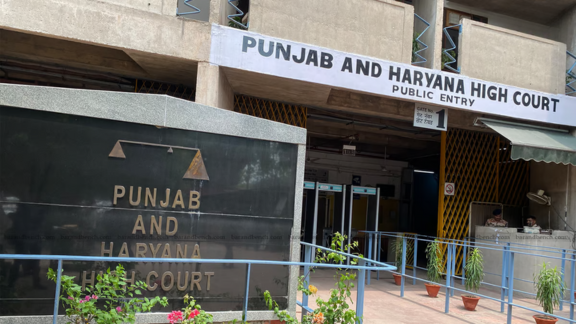The Punjab and Haryana High Court recently ruled that courts can grant ad-interim maintenance, including through ex-parte orders, under Section 125 of the Code of Criminal Procedure (CrPC) or Section 144 of the newly enacted Bharatiya Nagarik Suraksha Sanhita (BNSS), which replaced the CrPC.
Justice Sumeet Goel noted that although the law does not explicitly provide for ad-interim or provisional maintenance, there is no prohibition against it. “The Court has the power to grant ad-interim maintenance, including ex-parte ad-interim maintenance, as this power can be inferred as an implied or ancillary power vested in the Court. Additionally, such an interpretation would align with the beneficial purpose of the statute,” the judge stated.
However, the Court emphasized that ad-interim maintenance should only be granted in exceptional circumstances.
The Court further noted that any party seeking ad-interim maintenance must submit an affidavit detailing their assets and liabilities to support their request.
“It is understood that the exercise of power to grant ad-interim or ex-parte ad-interim maintenance must adhere to well-established principles of judicial discretion and equity. While it may be tempting to lay down exhaustive guidelines, such an approach is not feasible,” the Court added.
The ruling came during a revision petition challenging a family court’s order directing a man to pay ₹15,000 per month to his wife and child as provisional maintenance.
The husband’s counsel argued that there is no legislative mandate for granting ad-interim or provisional maintenance pending the resolution of an interim maintenance application under Section 125 CrPC. In contrast, the wife’s counsel maintained that the provisional maintenance was necessary to help the wife and child manage during the application’s pendency.
After examining the provisions, the Court asserted that a husband or father cannot neglect his responsibilities toward his family.
“In interpreting a law like Section 125 CrPC or Section 144 BNSS, the Court must consider not only the legal obligations but also the moral and social responsibilities of a husband or father toward his wife and children. Justice should not be confined by technicalities but should prioritize the interests of the wife and child,” the Court said.
The Court highlighted that, as per the statutory provision, interim maintenance applications must be resolved within 60 days of receiving notice.
While explaining the concept of ad-interim relief, the Court described it as an urgent, temporary stop-gap measure.
In the context of Section 125 CrPC and Section 144 BNSS, the Court provided examples where ad-interim maintenance might be necessary:
“There may be situations where a wife or child suffering from a prolonged illness requires immediate medical treatment and cannot afford the expenses. In such cases, immediate assistance may be necessary, as the wife or child might not survive long enough to benefit from a court order issued months later without an ex-parte or ad-interim maintenance order. Similarly, a child may be unable to attend school due to a lack of funds. The possibility of receiving arrears in the future is little comfort to those in immediate need.”
The Court concluded that, given the nature and purpose of the statutory provisions, it is implied that courts have the ancillary or incidental power to grant ad-interim maintenance when warranted by the circumstances.
In this case, the Court found that the order for ad-interim maintenance was issued after the maintenance application had been pending for eight months. The Court stated that the family court should have issued a reasoned decision on the interim maintenance application itself rather than resorting to ad-interim maintenance.
Moreover, the Court found no compelling circumstances to justify the ad-interim maintenance order and thus set it aside. The family court was directed to decide on the interim maintenance application within six weeks.
Advocate Parmod Kumar Chauhan represented the petitioner, while Advocates Akash Khurcha and Murari Tiwari represented the respondents.

















